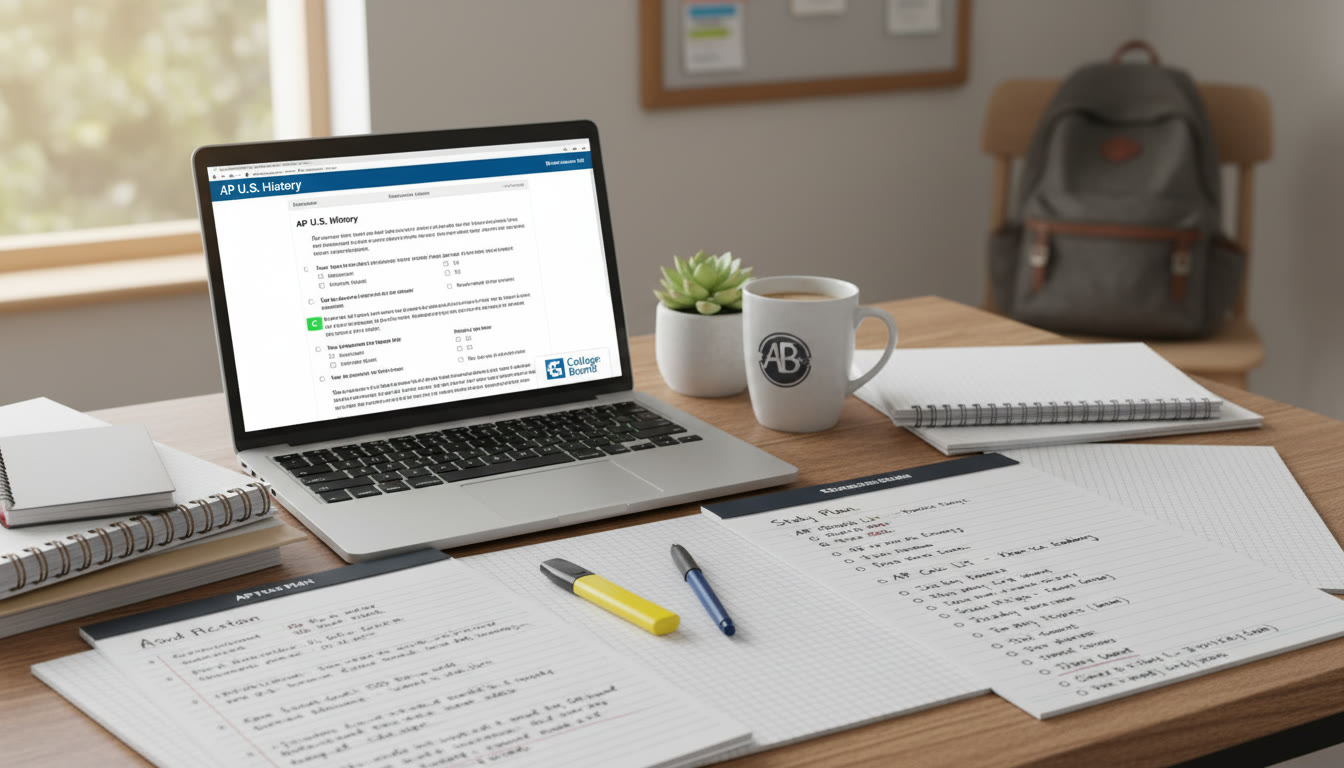Introduction: Why APs Matter for Students Aiming at NTU
Thinking about National Taiwan University (NTU)? First, take a breath — you’re not alone. Many international and local students consider AP coursework a powerful way to demonstrate academic readiness, intellectual curiosity, and the rigor that top universities respect. This guide walks you through what APs can mean in the context of NTU-style expectations, how to pick the right APs, and practical strategies for turning AP effort into admissions advantage, scholarship potential, and genuine subject mastery.

Understanding the AP Landscape in Relation to NTU
AP (Advanced Placement) courses and exams, offered by the College Board, are a familiar signal of college-level work. For students targeting NTU, APs can serve three main purposes:
- Academic preparation — mastering content that aligns with first-year university subjects.
- Admissions signal — showing willingness to take on rigorous coursework and succeed.
- Credit or placement — in some universities, strong AP scores can lead to course exemptions or advanced standing; policies vary, and students should confirm NTU’s current rules for credit recognition.
Keep in mind that NTU is a research-led, competitive institution. Admissions committees look for evidence of sustained academic commitment, clear intellectual interests, and the capacity to thrive in an environment that rewards curiosity and resilience.
How Admissions Committees View APs
Admissions readers don’t just tally APs and scores. They ask questions such as: Did the student pursue challenge in areas that align with their intended major? Are the AP exams supported by strong school performance and teacher recommendations? Does the student’s broader profile — essays, extracurriculars, project work — paint a coherent intellectual narrative? APs are a piece of the puzzle, not the whole puzzle.
Choosing the Right AP Subjects: Strategy Over Quantity
One common mistake is believing more APs equals a stronger application. Instead, think alignment and mastery. Choose APs that do two things: deepen your knowledge in an intended field, and allow you to demonstrate high performance.
AP Subject Selection by Intended Major
- STEM (Engineering, Physics, Computer Science): AP Calculus AB/BC, AP Physics 1/2/C (mechanics/electricity & magnetism), AP Computer Science A, AP Chemistry.
- Biological Sciences/Pre-Med: AP Biology, AP Chemistry, AP Calculus, AP Statistics.
- Social Sciences (Economics, Political Science): AP Microeconomics, AP Macroeconomics, AP Human Geography, AP Psychology, AP Statistics.
- Humanities (History, Literature, Languages): AP English Language and Composition, AP English Literature and Composition, AP World History, AP European History, AP Chinese Language and Culture.
Quality matters: excelling in 3–5 well-chosen APs is often far more persuasive than taking 10 APs with mixed results. Admissions officers notice patterns: consistency in grades and strong AP exam scores in areas that match your narrative are compelling.
Crafting a Multi-Year AP Plan
Start early and map backwards from your target exam dates and application deadlines. A typical roadmap might look like this:
| Year | Focus | Example APs | Goals |
|---|---|---|---|
| Grade 10 | Foundation | AP World History, AP Biology | Build study habits; take one AP exam to test waters |
| Grade 11 | Depth | AP Calculus AB/BC, AP Chemistry, AP English Lang | Target high scores (4–5); refine test-day strategies |
| Grade 12 | Specialization | AP Physics C, AP Chinese or AP Literature | Align APs with intended major; polish application narrative |
Flexibility is crucial. If a subject proves to be a poor fit, it’s wiser to refocus than to overcommit to too many exams and risk lower scores.
Timing and Test Taking Strategy
AP exams are administered each May. Many students take 1–2 exams per year initially, then ramp up in the year before college applications. Consider the following practical tips:
- Plan backward from May exam dates and NTU application deadlines. Allow 3–4 months of steady preparation for a first AP in a subject you’ve not previously studied at depth.
- Simulate exam conditions: timed practice exams are the single best way to build stamina and reduce test anxiety.
- Use mixed practice for endurance — alternate between fast-paced multiple-choice sections and longer free-response writing blocks.
Study Techniques that Actually Work
Studying smarter, not just longer, will produce higher payoffs—especially when balancing multiple APs.
Active Learning Methods
- Spaced repetition: review core concepts over increasing intervals to transfer facts into long-term memory.
- Interleaving: mix practice problems from different topics to improve problem-solving flexibility.
- Elaboration: explain concepts aloud, teach a peer, or write short summaries to deepen understanding.
Free-Response Preparation
AP free-response sections reward clarity, structure, and evidence. Practice with past prompts and focus on:
- Planning a brief outline before writing — this saves time and produces more coherent responses.
- Using subject-specific vocabulary and citing precise evidence or calculations.
- Answering the question directly in the opening sentence and concluding with a compact summary.
Turning AP Results into an Application Narrative
APs should support a story about who you are as a learner. Admissions readers love coherence: your chosen APs, research projects, internships, and essays should point to the same intellectual interests.
Examples of Coherent Application Threads
- A student applying to Computer Science pairs AP Calculus BC, AP Computer Science A, and a personal coding project — their essays reflect curiosity about algorithms and a summer research internship.
- An aspiring biochem major takes AP Biology and AP Chemistry, volunteers in a lab, and writes an essay about a meaningful science project — AP scores show they can handle the coursework.
These threads help admissions officers see that APs are not checkbox exercises but intentional choices that reflect passion and preparation.
Practical Considerations for International Applicants to NTU
International students should be mindful of documentation, language requirements, and how NTU interprets international credentials. APs can be particularly helpful because they provide a standardized measure of academic readiness recognizable across systems.
Documentation and Reporting
- Order official score reports from the College Board to be sent as requested by NTU or included with your application materials if required.
- Keep syllabi, project write-ups, and teacher recommendations that contextualize your AP coursework—these help clarify rigor for admissions reviewers.
When AP Scores Translate to Credit or Placement
Some universities grant credit or allow course placement based on AP scores (commonly scores of 4 or 5). NTU’s policies on AP credit and course exemptions may vary by department and year, so students should confirm current rules directly with NTU admissions or the relevant department. In general:
- Use APs to accelerate into higher-level courses where appropriate.
- Keep a dialogue with NTU admissions and academic advisors to understand how AP credit could affect your study plan.
Balancing Life, Well-Being, and AP Ambition
Burnout is real. High-achieving students sometimes over-organize themselves into schedules that erode creativity and joy. A sustainable approach includes:
- Regular breaks and sleep — cognitive performance depends on recovery.
- Flexible study blocks instead of rigid 12-hour marathons; shorter, focused sessions often yield better retention.
- Time for extracurriculars that maintain perspective — leadership, service, and personal passions are also part of a competitive profile.
How Personalized Tutoring Can Help — A Note on Sparkl’s Offerings
Many students benefit from one-on-one guidance to translate hard work into higher AP scores and stronger applications. Personalized tutoring can offer:
- Tailored study plans that zero in on content gaps and exam-style weaknesses.
- Expert tutors who provide subject-specific strategies and feedback on free-response work.
- AI-driven insights to track progress and recommend targeted practice — speeding up improvement while reducing wasted time.
For example, Sparkl’s personalized tutoring blends expert tutors with tailored lesson plans and AI-driven progress tracking — a model that helps students stay focused, shore up weaknesses, and build confidence before exam day. When used thoughtfully, such support magnifies the efficiency and impact of student effort.
Study Resources and Practice Schedules (Practical Plan)
Below is a sample 12-week study schedule designed for a student preparing for one AP exam in an academically busy season. Adjust length and intensity depending on the subject and how much prior exposure you have.
| Weeks | Focus | Weekly Activities |
|---|---|---|
| 1–2 | Diagnostic and Foundations | Take a full-length diagnostic; review fundamentals; create flashcards. |
| 3–6 | Topic Mastery | Deep work on weak topics, daily short practice sets, weekly timed section. |
| 7–9 | Application & Free Response | Practice FRQs under timed conditions; get tutor or teacher feedback. |
| 10–11 | Full Practice Tests | Weekly full tests; detailed review of errors; targeted drills. |
| 12 | Polish & Rest | Light review, short practice sets, rest and sleep, test logistics check. |
How to Use Practice Tests Effectively
- Review mistakes immediately and categorize them: content gaps, careless errors, or timing issues.
- Track error patterns across multiple practice tests — recurring flaws tell you where to focus.
- Simulate exam day once every two weeks under full timing and environmental constraints (no phone, realistic breaks).
Real-World Examples: Making APs Work for You
Here are two short vignettes that show how APs can shape an application narrative that resonates with NTU-style expectations.
Case 1: Mei — The Aspiring Environmental Engineer
Mei took AP Calculus BC, AP Physics C, and AP Chemistry. She paired those courses with a local river-cleanup research project and a summer internship at a university lab in Taipei. Her AP scores were strong, but what made her application sing was the continuity: coursework that prepared her for core engineering classes, a research project that showed applied interest, and essays connecting personal motivation to technical learning.
Case 2: Alex — The Comparative Literature Candidate
Alex focused on AP English Literature, AP World History, and AP Chinese Language and Culture. He submitted an essay analyzing narrative techniques across cultures and included a translation project he worked on with a teacher. APs demonstrated his literary grounding; his extracurriculars and writing showed that he could bring depth and cross-cultural perspective to his studies.
Common Misconceptions and How to Avoid Them
- Myth: “NTU only cares about AP scores.” Reality: APs are helpful but admissions look at the whole applicant.
- Myth: “Take as many APs as possible.” Reality: Strategic alignment and strong outcomes matter more than quantity.
- Myth: “A 3 is useless.” Reality: While higher scores are preferable for credit and placement, a 3 can still reflect meaningful learning and is better contextualized alongside grades and other achievements.
Final Checklist: Before You Submit Applications
- Confirm NTU’s current policies on AP score reporting and credit recognition.
- Ensure official AP score reports are ordered if required.
- Align your application narrative with your AP choices — let your essays and recommendations amplify the same themes.
- Practice articulation: be ready to explain how your APs prepared you for your intended major in interviews or essays.
- Consider targeted tutoring or mentorship if you need efficient, personalized improvements — services like Sparkl can offer tailored plans and expert feedback to help you reach target scores.

Closing Thoughts: APs as a Path, Not a Destination
APs are powerful tools when used wisely. For students aiming at NTU, the best strategy is coherence: pick APs that reflect your true interests, prepare intentionally, and translate those results into a compelling application story. Combine disciplined study habits, realistic timelines, and support when needed — whether that’s teacher feedback, peers who study with you, or targeted one-on-one tutoring that focuses on your weakest points.
Remember: admissions officers are people who respond to honesty, passion, and clarity. Let your AP choices be an honest reflection of your curiosity and preparedness. If you build that story thoughtfully and back it up with strong performance, you’ll give yourself the best possible chance to stand out at NTU and beyond.
Want a Practical Next Step?
Start with a honest diagnostic: pick 1 AP subject that most closely aligns with your intended major and take a practice exam under timed conditions. Identify three specific weaknesses and design a two-week plan to address them. If you want tailored help, consider working with a tutor who can create a personalized plan, provide expert feedback, and keep you accountable — Sparkl-style personalized tutoring is one option to consider when you need focused support.
Good luck — and remember: rigorous preparation paired with thoughtful strategy is a sustainable path to success.
















No Comments
Leave a comment Cancel